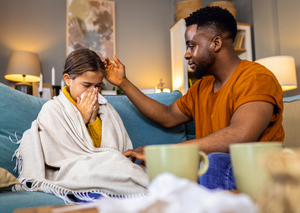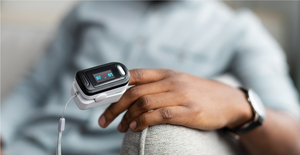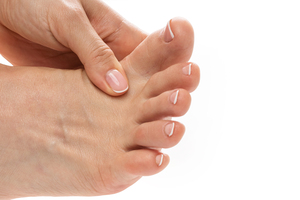Skin Cancer Screening
A dermatologist or skin specialist usually performs skin cancer screening. Use Solv to find top-rated providers in your area who offer skin cancer screening. Solv is convenient and easy to use and allows you to book a same-day appointment with providers and walk-in clinics directly from its website.
What is skin cancer screening?
Skin cancer screening is a visual exam your doctor performs to see whether you have any signs of skin cancer. According to the National Institutes of Health (NIH), a skin cancer screening involves looking for marks on the skin such as moles and birthmarks that have an unusual color, size, shape, and/or texture. If your skincare doctor thinks you may have skin cancer, a biopsy can be performed to confirm whether or not you have cancer.
What is it used for?
Skin cancer screening assesses whether your skin shows any signs of skin cancer. Screening cannot diagnose cancer, says the NIH. Skin cancer can be properly diagnosed using a biopsy.
Why do I need a skin cancer screening?
According to the NIH, skin cancer is easier to treat in its early stages. Skin cancer screening can bring you one step closer to knowing if you have cancer, so it can be effectively treated before it becomes more severe or spreads to other parts of the body.
What happens during a skin cancer screening?
Skin cancer screening usually takes between 10 and 15 minutes to perform, says the NIH.
First, your dermatologist or skincare doctor will ask you to remove your clothing and wear a hospital gown. Then, your doctor will examine your skin from head to toe, including your scalp, behind your ears, and your buttocks and genitals, adds the NIH. If your dermatologist finds any signs of skin cancer, they may order or perform a biopsy to confirm whether the mark or irregularity is cancerous.
Will I need to do anything to prepare for the test?
A skin cancer check requires very little preparation. The NIH recommends against wearing makeup or nail polish for your skin cancer screening, given how these cosmetics may cover signs of skin cancer. The NIH also suggests wearing your hair loose so your dermatologist can properly examine your scalp.
Are there any risks to the test?
Skin cancer screenings do come with risks, says the NIH. These risks include getting back false-negative or false-positive results and potential scarring from the biopsy. The NIH adds that finding skin cancer won’t necessarily lead to improved health or a longer life and recommends discussing this test with your doctor beforehand to fully understand all potential risks.
Find Skin Cancer Screening near you
- Alabama
- Alaska
- Arizona
- Arkansas
- California
- Colorado
- Connecticut
- Delaware
- Florida
- Georgia
- Hawaii
- Idaho
- Illinois
- Indiana
- Iowa
- Kansas
- Kentucky
- Louisiana
- Maine
- Maryland
- Massachusetts
- Michigan
- Minnesota
- Mississippi
- Missouri
- Montana
- Nebraska
- Nevada
- New Hampshire
- New Jersey
- New Mexico
- New York
- North Carolina
- North Dakota
- Ohio
- Oklahoma
- Oregon
- Pennsylvania
- Rhode Island
- South Carolina
- South Dakota
- Tennessee
- Texas
- Utah
- Vermont
- Virginia
- Washington
- Washington DC
- West Virginia
- Wisconsin
- Wyoming
Skin Cancer Screening FAQs
How can I get checked for skin cancer?
Skin cancer screenings are typically performed by skincare doctors, skin specialists, and/or dermatologists. To look for these providers near you, type “skin cancer screening near me” into your search engine, or use Solv’s directory to locate only the highest-rated providers in your local area. Solv allows you to book an appointment with a skincare doctor directly from its website.
What is skin cancer screening?
Skin cancer screening can help identify signs of skin cancer on your body. It is a visual exam that requires no machines or special devices, though your dermatologist may use a magnifying glass to inspect certain marks more clearly, says the NIH. These skin cancer tests can often help detect cancer so you can have it treated in its early stages.
Who should I see for skin cancer screening?
Skin cancer screening is usually performed by a board-certified dermatologist, reports Stony Brook Medicine. Your general physician can give you a referral to a skincare doctor or dermatologist who performs skin cancer screenings. You can also use Solv to read reviews about top-rated dermatologists in your area who offer this service and make an appointment from Solv’s website.
Who should be screened for melanoma?
Anyone can get melanoma, says the CDC. However, certain factors may increase your risk of getting this type of skin cancer. People who should be screened for melanoma, according to the University of Rochester, are those with frequent sun exposure, moles, fair skin, light hair, and a family or personal history of skin cancer. Melanoma skin cancer detection can also benefit those who use tanning beds or who have a compromised immune system, adds the university.
What should I do if I spot an odd-looking mole?
An odd-looking mole may be a sign of skin cancer, says the NIH. Signs of an odd-looking mole include oozing, bleeding, crusting, and/or irregular borders that bleed easily, adds the NIH. Make an appointment with your skincare doctor or dermatologist if you spot an odd-looking mole. Your provider can perform a skin cancer test along with a biopsy.
Who has a higher risk of skin cancer?
According to the CDC, people with a higher risk of skin cancer generally have light-colored skin, blue or green eyes, blond or red hair, and skin with freckles or that burns easily in the sun. Other factors that put you at high risk of skin cancer include having a personal or family history of skin cancer and being an older adult.
How can I protect myself from the sun?
Protecting yourself from the sun can often reduce your risk of developing skin cancer. Steps you can take to protect yourself from the sun include, according to the NIH, wearing a hat and sunglasses, spending time in the shade whenever possible, and using a sunscreen with a sun protection factor (SPF) of at least 30. Stony Brook Medicine also recommends wearing pants and long-sleeved shirts in the sun and avoiding tanning beds.
Where can I get a skin cancer screening near me?
Type “dermatologist near me” into your search engine to find local providers of skin cancer screening. Better yet, use the search feature on Solv to locate only the highest-rated skincare doctors and dermatologists in your area. Solv makes it convenient for you to find nearby doctors and virtual visits to get high-quality medical care promptly.
Solv has strict sourcing guidelines and relies on peer-reviewed studies, academic research institutions, and medical associations. We avoid using tertiary references.
Everyday Healthcare, Simplified
Expert advice to help you live your best life








